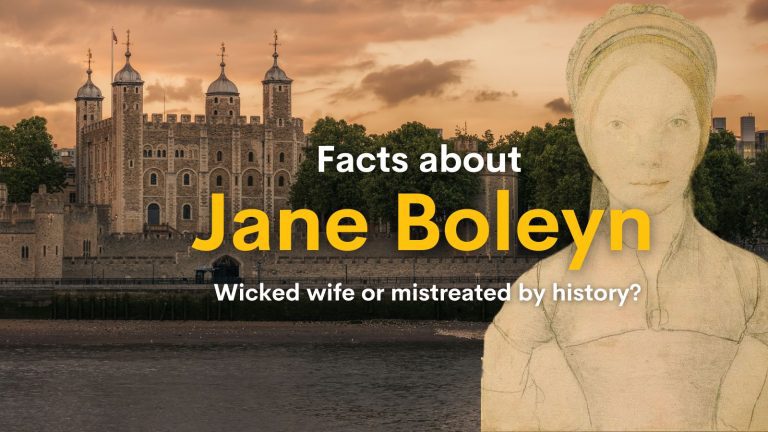What was the Blaybourne Conspiracy?
Who doesn’t love a conspiracy theory? But have you heard of the Blaybourne Conspiracy?
You probably haven’t, as there are many more famous conspiracy theories to chase down rabbit holes.
Neil Armstrong, or anyone else for that matter, never walked on the moon’s surface.
The Olympic sank in the middle of the Atlantic, not the Titanic. It was all an elaborate insurance scam.
A UFO crashed in Roswell, New Mexico in 1947, and the US government is fully aware of alien life.
If those don’t excite you, there is always the one where Paul McCartney from The Beatles was killed in a car accident in 1966 and has been “played” by a lookalike ever since.
Then there are about a million different theories floating around related to the Coronavirus pandemic.
You might think that conspiracy theory is a new phenomenon. Indeed, the introduction of the internet and social media has helped them go a little more mainstream. It also allowed the viral spread of the pandemic-related ones a few years ago… (see what I did there?)
However, the conspiracy theory has existed for centuries, if not millennia.
For this article about the Blaybourne Conspiracy, I need to take you back to the Wars of the Roses.

The basis of the Blaybourne Conspiracy
The Blaybourne conspiracy centres around the possibility that King Edward IV was illegitimate; that his father was not Richard, Duke of York, but instead a common archer called Blaybourne.
If this is true, Edward IV should never have been King of England.
This is significant because Edward IV was the father of Elizabeth of York. Henry Tudor married Elizabeth of York after his victory at the Battle of Bosworth (making him Henry VI), which boosted his weak claim to the throne. Elizabeth of York became the mother of Henry VIII.
If the theory were to be proved correct, the whole Tudor dynasty would’ve been illegitimate.
The theory revolves around a period of separation between Richard, Duke of York, and his wife, Cecily Neville. It is said that during this prolonged period of separation, Cecily fell pregnant; the man responsible was an archer name Blaybourne.
When do we first hear about the story?
Stories about the legitimacy of Edward IV start around 1460. The Earl of Warwick, The Kingmaker, started talking about these rumours in 1469.
It doesn’t take too long digging on the internet to find that some people suggest that Cecily Neville herself that was the originator of the Blaybourne conspiracy. She was so enraged that her son had married Elizabeth Woodville that she threatened to reveal the story herself to destroy his claim to the throne.
Another person known to be spreading the rumours of Edward’s parentage was his brother George, Duke of Clarence.
However, both Warwick and Clarence pushing the stories come as no surprise. Warwick had fallen out with Edward and moved to the Lancasterian side in the Wars of the Roses. Clarence was the principal beneficiary if Edward was illegitimate – he would be the Yorkist claimant to the throne.
What is the truth of the story?
When you first hear the story, it seems pretty shocking.
However… let’s consider each of the elements in turn.
Period of Separation
The key to the story is the fact that Edward was born nine months after the period of separation.
Hence if the husband and wife were apart, the Duke of York could not have been Edward’s father.
But further investigation reveals that the period of separation between Richard, Duke of York and Cecily Neville was no longer than five weeks.
Five weeks!
We aren’t taking about three or four months here.
It is quite possible that Edward could have been five weeks premature (in fact, a point we will consider later suggests that might have been the case), or he could have arrived late.
The reason for the separation was that Richard’s forces were undertaking the siege of Pontoise. This was a distance away from his base at Rouen.
However, the distance between Rouen and Pontoise was a little under 60 miles, AND it was linked by a high-quality roman road. It is perfectly acceptable to assume that a woman like Cecily Neville could have travelled such a short distance to visit her husband during the siege. It isn’t as though the couple was 800 miles apart!
Low Key Baptism
Edward’s baptism was considered low-key. As though Richard were trying to brush the birth of his “son” aside – as though he wanted it forgotten (Because he knew the child wasn’t his.)
The argument for this was that Edward’s younger brother, Edmund, was given an enormous baptism a little over a year later. The arguments ignore the size of the baptisms of George and Richard in subsequent years were very similar to that of Edward.
Could it not have been that Edward had arrived prematurely, and the baptism was rushed as the child was not expected to survive? It would seem logical that this might have been the case, as opposed to Richard trying to brush the birth under the carpet.
Richard, Duke of York, was also going through a bad time. His forces were performing poorly. He had other considerations on his mind at the time.
Likelihood of an affair
Would Cecily Neville really have an affair with an archer called Blaybourne?
Cecily Neville was in Rouen Castle. She was a “Queen” in all but name.
Does it make sense that she managed to conduct an affair with an archer of all people without anyone knowing? If we fast forward a few years, the royal court soon discovered Catherine Howard’s affair with Thomas Culpeper.
Rouen Castle was essentially the same system.
How could the highest-ranking woman be alone with an archer? He wouldn’t even have had the same freedoms that Thomas Culpeper had as a gentleman of Henry VIII’s privy chamber. He simply would not have had security clearance to get close to the apartments of the Duchess.
Cecily Neville was known to be very proud of her status in the world – would she have lowered herself to a relationship with an archer? It seems rather unlikely.
Did Cecily Neville actually start the story?
Do we really have evidence that Cecily Neville started the story? No. It is all hearsay and rumour.
Could not Cecily Neville have been in a rage (something that happened frequently) and someone misheard or misunderstood?
In her final will, she opens with these words “Cecill, wife unto the right noble prince Richard late Duke of Yorke, fader unto the most cristen prince my Lord and son King Edward” – there is no attempt to correct the fact that Edward had been king incorrectly. (Or indeed, that she was also mother to another King…Richard III.)
Why did Richard, Duke of Gloucester, change his argument?
After the death of Edward IV, his younger brother Richard, Duke of Gloucester, made a successful play for the throne – robbing his brother’s sons (The Princes in the Tower) of their right to the throne.
His initial moves centred around this old story that his elder brother was illegitimate. If Edward was illegitimate, then his children could not inherit the throne.
However, within a matter of days, Richard, Duke of Gloucester, changed his line of attack. Instead, he insisted that his brother had a pre-contract of marriage before his marriage to Elizabeth Woodville. Instead of saying that Edward himself was illegitimate, he said that his children were.
Could this change of approach be because he knew that his brother’s parentage was the same as his?
Essentially, the Blaybourne Conspiracy is an interesting story – but it remains just that…. a story. There seems little evidence that it is true.






